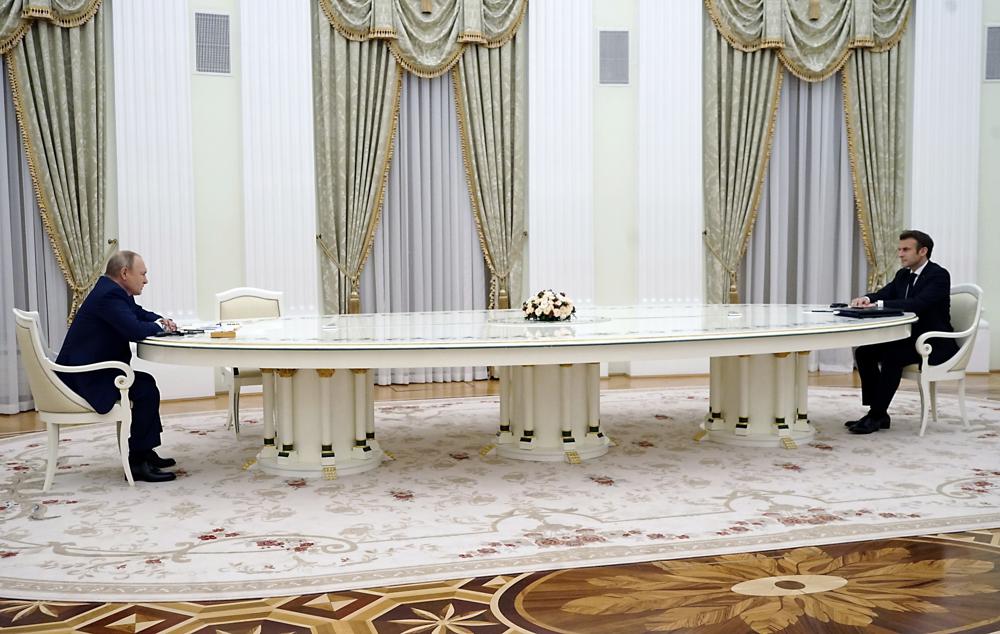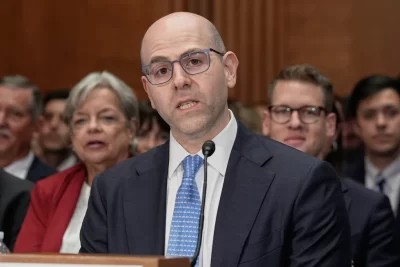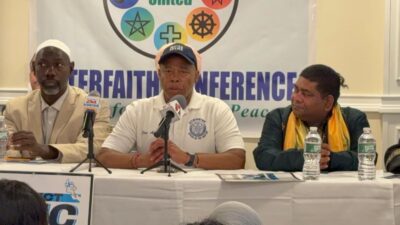
If knowledge is power, knowing the intimate secrets of one’s DNA could be a powerful weapon. That might explain why the world leaders who hastened to Moscow in recent days for diplomatic talks seemed to balk at Russian-administered coronavirus tests.
But this may be a case where imagination is getting a bit ahead of what science is actually capable of.
German Chancellor Olaf Scholz refused to let Russia conduct a PCR test — while French officials said President Emmanuel Macron balked at some of the requirements to meet Russian President Vladimir Putin, leading to speculation he didn’t want the Russian swab either.
Neither leader is known for opposition to COVID-19 countermeasures, so speculation arose that they were trying to keep genetic material out of Russia’s hands.
In the high-stakes world of national security and international espionage, global powers are always looking for an edge, and increasingly those new fronts are less tangible than the battlefield.
Here’s a look at what may be — but probably isn’t — afoot:
HAVE THE LEADERS ACTUALLY ACCUSED RUSSIA OF TRYING TO USE THEIR DNA FOR NEFARIOUS MEANS?
Well, no. But that hasn’t stopped the rampant speculation.
French officials bristled at questions and dismissed any idea that the Russians were trying to secretly get Macron’s DNA.
A French official said Russia’s conditions for Macron to get close to Putin were “not acceptable” and “not compatible” with the French president’s agenda. Hence: the absurdly long marble table that Macron and Scholz shared with the Russian president and which spawned many memes.
German government spokesperson Steffen Hebestreit said he was “reluctant” to comment after the Macron stir. But he told reporters in Berlin that Scholz followed the same procedure Germany applies to foreign dignitaries: They can submit their own PCR tests and, if there’s any doubt, a doctor can come on board the plane to observe the testing.
“The Russian side saw it differently and said: if there’s a test it needs to be a Russian one. And the chancellor decided he wouldn’t be available for that,” said Hebestreit, adding: “But I wouldn’t interpret too much into that.”
WHY WOULD FRANCE AND GERMANY HAVE REASON TO MISTRUST RUSSIA?
Both countries are members of NATO, which also includes the United States and Britain. NATO was formed during the Cold War by Western allies as a bulwark against the Soviet Union.
Russia has expressed concern that NATO is using Ukraine as a pawn to undermine Russia and has cited that as the reason for its military buildup along Ukraine’s borders.
WHAT CAN YOU ACTUALLY LEARN FROM DNA?
“Those samples have tons of human DNA,” said Kenny Beckman, who directs the University of Minnesota Genomics Center. “You could definitely take that sample, extract the DNA and do whatever kind of full workup you’d want to do on that person.”
Your DNA has the instructions that you need to survive and grow. Every person’s DNA is unique. It can be used to find where your ancestors might have come from, whether you have any unknown relatives floating in the ether, and also whether you have certain genetic diseases or genetic abnormalities associated with diseases or medical conditions.
In forensic science, DNA can be used to physically connect someone to a piece of evidence or eliminate someone as a suspect in a crime.
HOW COULD DNA BE USED AGAINST WORLD LEADERS?
“You can use DNA to identify disease risk, so (the world leaders) might be at risk for a disease,” said Howard McLeod, a genetics expert and director of precision medicine at the Florida-based Geriatric Oncology Consortium. “You could look and see if there could be some ancestry elements that could be exploited.”
But in general, he said, the idea of learning more about someone like a world leader through DNA probably “seems a lot more scary than it is in reality.”
Beckman said it seemed “farfetched” to think that the information gathered could be politically damaging.
“What are you going to do, say that Macron has a slightly higher risk of blood pressure?” Beckman asked. “But then I don’t spend a lot of time trying to dream up ways to weaponize someone’s genetic information.”
George Annas, a bioethicist who has written extensively about the importance of genetic privacy, wants to make one thing clear: “DNA is not magic. It’ll give you some information, but it’s not going to tell you how you can assassinate somebody.”
But even without the capability to build an individually targeted bioweapon, the power of suggestion can be enough to compromise world leaders, and Russia has been known to employ kompromat — blackmailing someone by threatening to release embarrassing information about them.



